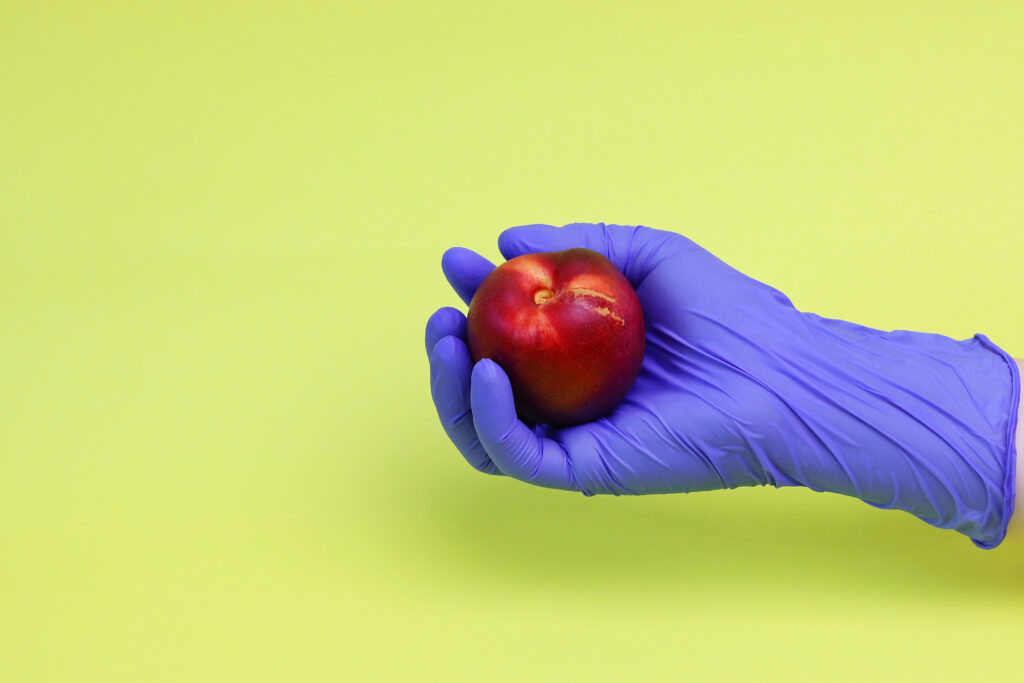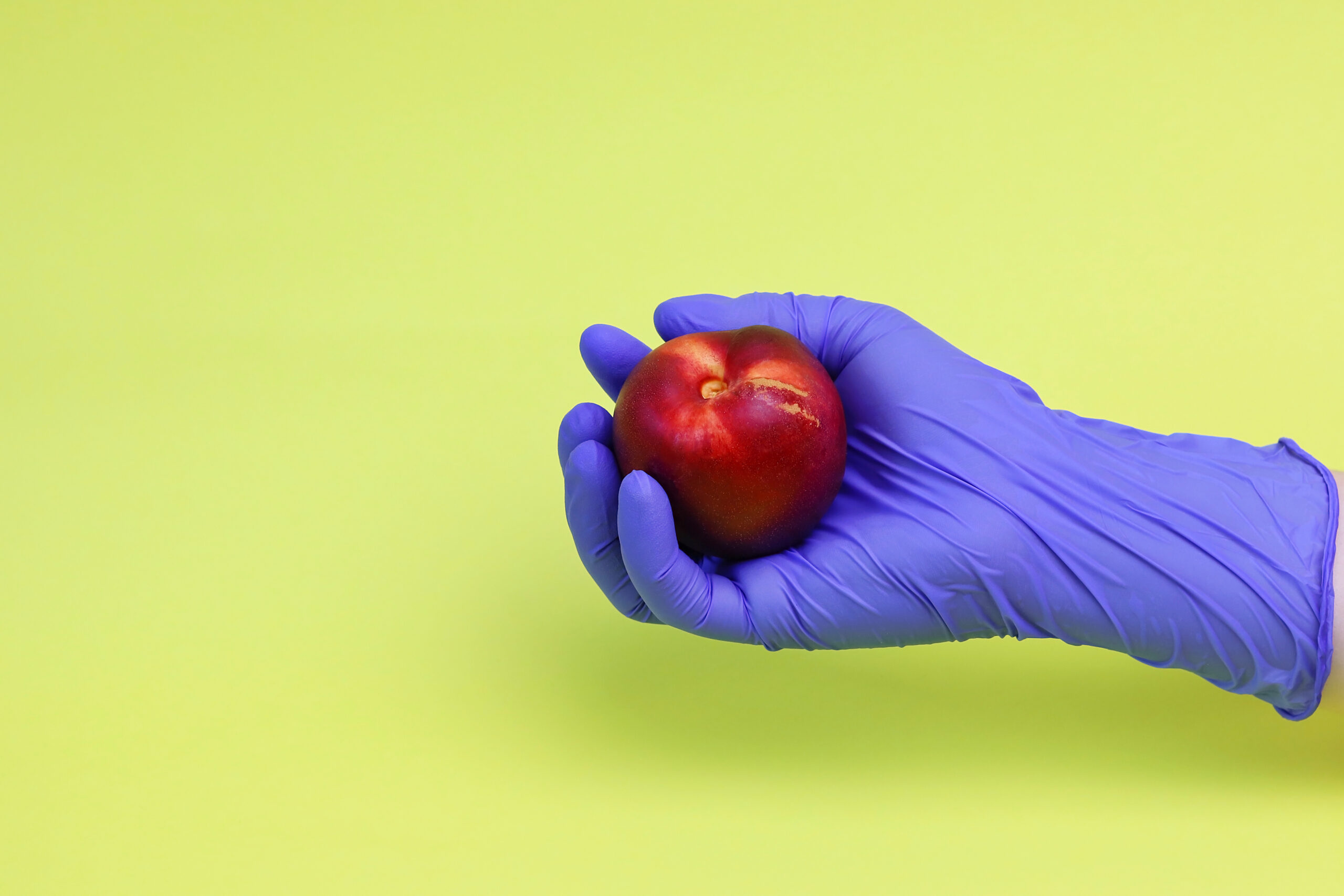
The Most Powerful Way To Truly Protect Yourself From Not Only Covid, But The Majority Of Modern Disease
Hey guys. Let me start by saying I LOVE writing for HRD2KILL. This is an awesome community of go-getters. With that said, the info I’m here to provide can and should be used by anyone. Let’s have quick look at the dietary link to coronavirus, shall we?
Here’s the gist: BMI (body-mass index) and metabolic health are strongly linked to your risk of dangerous Covid symptoms. Right now, mainstream media doesn’t just avoid these topics, they’re hardly being discussed at all.
While mass testing drives promote McDonalds and offer free Coca-cola as incentive, avoiding these foods would be more effective than a mask any day of the week.
Why is this? Well, to be completely frank, our idea of diet is jacked the f*** up. We’ve been telling people to prioritize carbohydrates from grains since the 50s, Poly-unsaturated Fatty Acids from vegetable oils have taken over despite never being a regular part of a human diet, and nearly every condition these dietary guidelines was written to stop has instead increased exponentially.
The current nutrition norms cause insulin resistance, higher inflammation, and increased risk of both infectious disease and metabolic conditions like heart disease, diabetes, and obesity.
In short, this article is about the link between metabolic health and your risk of dangerous Covid symptoms, as well as how we can shift the nutrition paradigm for a healthier, more resilient world in the future.
Metabolic Health And Infectious Disease
Science about Covid didn’t exist at the start of the pandemic. This is still a very new disease, and it’s no surprise we are just now finding clear links between behaviors and disease risk.
Even so, there is a large body of data about similar diseases. Flu shots, antibiotics, and the pharmaceutical world are talked about often and loudly, but rarely does the conversation turn towards diet.
Your metabolic health is clearly linked to your susceptibility to infectious diseases.
Obesity, Diabetes, and Glycemic Variability (unstable blood sugar responses to food) have been associated with worse outcomes in Middle-Eastern Respiratory Disease (MERS,) H1N1 Inluenza, other influenza and SARS conditions, and of course, COVID-19.
It is estimated that only 20% of the U.S. population is optimally metabolically healthy. This is not good. Studies such as those above hint at strong links between metabolic health and immune function. Aging and hypertension also increase risk of worse outcomes from Covid, but I see this disease as less of a super bug and more of a warning. The health of our species is thoroughly compromised, and diet is the likely cause.
For now, lets just look at Covid.
According to this paper, among an elderly population, those with a BMI over 35kg/m(2) had a 3.6 times greater chance of needing critical care than those with a BMI less than 30. Furthermore, independent of age, those admitted to intensive care units in France were 7 times more likely to need an invasive respirator if their BMI was over 35kg/m(2) than those with a BMI less than 25.
Higher BMI is associated with increased risk for diabetes, hypertension, and cardiovascular disease. Also referred to as metabolic syndrome, these conditions are all linked to lower insulin sensitivity which is a result of diet.
“Poor diet is the most significant contributor to the burden of chronic, lifestyle-related diseases like obesity, type 2 diabetes and cardiovascular disease.1” — COVID-19 and metabolic syndrome: could diet be the key?
So, what do we eat? As far as I can tell, the biggest factors at play are vegetable oils, simple sugars and carbohydrates, and inflammatory foods (foods that are common immune triggers, like wheat and dairy.)
Battening down our diet is the best thing we can do to face Covid. Our options are to face this disease and form herd immunity, or wait for a vaccine. So far, I don’t have my hopes up for the vaccine. Plus, figuring out our diet is insanely important for our future in general. For the first time in decades, the current generation of American children has a lower life expectancy than their parents because of obesity.
Time to figure out how to eat right.
Vegetable Oils. The Number One Bad Guy In Our Diet.
Over the past hundred years, humans have developed a strange relationship with dietary fats. With roots in the industrial revolution, we have shifted away from saturated fats and animal foods and towards vegetable oils and avoiding dietary cholesterol.
Let’s start with cholesterol.
Back in the 40s, a researcher named Ancel Keys set out to cure a strange new disease called heart disease. Yep, before then, heart attacks were so rare they were barely recognized as a disease at all.
Anyway, Keys put out something called the diet-heart hypothesis. Based on his 7 countries study, Keys believed that cholesterol clogged our arteries the way butter might clog a kitchen sink.
He went on to declare dietary cholesterol the primary driver of heart disease. He recommended avoiding saturated fat and prioritizing carbohydrates.
Despite the fact that Keys’ opinions were widely criticized in the scientific community, they went on to completely rewrite the world’s view of nutrition. President Eisenhower took Ancel Keys’ recommendations and adopted a high carb, low fat diet. President Eisenhower’s cholesterol skyrocketed and he suffered 6 more cardiac events (including the one that killed him.)
Even so, Eisenhower promoted this high-carb way of eating, and the nation began to view saturated fat as unhealthy.
Our food supply has changed as a result of these beliefs. Grains are subsidized and a major staple of available food. However, that’s hardly the greatest change.
By far, we have increased our consumption of Poly-unsaturated Fatty Acids (PUFAs) from Vegetable oils more than any other food commodity. What’s the problem? PUFAs are easily oxidized by light and heat. When we eat them, they always cause inflammation. Even sugar only causes inflammation if you are metabolically unhealthy, but the oxidized oils we eat will always damage our cellular biology.
Consider this: Before the 20th century, PUFAs and vegetable oils were almost nonexistent in the diet of humans. Now, they can be found almost everywhere. Almost all restaurants cook with cheap, oxidized, high PUFA vegetable oils. Corn oil is subsidized and used in all sorts of pre-packaged foods.
Avoiding vegetable oils may be one of the most difficult changes we can make to improve our diets, but I believe it is also one of the most powerful. The best way to do this is by avoiding processed foods of all kinds. This includes anything and everything bought in a box.
You want to avoid anything with vegetable oil, canola oil, corn oil, peanut oil, and an assortment of other oils. These are all high in PUFAs and easily oxidized.
Saturated fats and a few others like extra-virgin olive oil are fine.
Overall, the best way to avoid excess vegetable oils is to cook your food, and use saturated fats like coconut oil, ghee, or animal tallow to cook with. Grass-fed butter is low in PUFAs but it does burn easily. It’s not the best for cooking with because of this, but can be used in low-heat cooking or as a topping.
So, step one of improving your metabolic health is avoiding low quality, high PUFA, vegetable oils.
For a great resource on this topic, I highly recommend reading Big Fat Surprise by Nina Teicholz. She also has a great Ted talk here.
A Low-Carb Diet
I believe humans are very adaptable as long as we are eating whole foods. However, if we are already metabolically compromised, it is a good idea to correct our metabolism by restricting carbs.
First and foremost, we should all avoid simple carbs and processed sugar. This means avoiding things like candy, pastries, soda, sugary drinks, etc.
Beyond that, reducing our overall calorie load from carbs will help us improve our insulin sensitivity and our metabolic health.
Humans are still biologically similar to the way we were 200,000 years ago. We can guess at how we ate back then by observing modern hunter-gatherers. Even today, modern hunter-gatherers usually consume less than 20 percent of their daily calories from carbohydrate, and many groups (such as the inuit) consume almost no carbohydrate year round.
Based on this, I consider 25% or less calories from carbohydrate a good place to start. I also think it’s worth trying a full-on ketogenic diet for more targeted metabolic healing.
Ketogenic diets involve getting less than 5% of your daily calories from carbohydrate, and 70% or more from fats.
During a ketogenic diet, your body begins using ketones (a biproduct of burning fat for fuel) as a replacement for glucose. Some bodily processes can only use glucose for fuel but many can use ketones. This state, called ketosis, results in many positive functions for your biology, including cancer prevention, improved metabolism, reversal of insulin resistance, and others.
There is debate whether humans can function optimally in Ketosis year-round (though many tribal groups likely do so) but it’s pretty well shown that entering ketosis sometimes is far better than never doing so. The work of Dr. Dom D’Agastino is a great resource for learning about ketogenic diet benefits.
I try to be ketogenic at least half the time, but I’ll have at least one day a week where I eat carbohydrates without monitoring.
Like I said, some bodily processes must use glucose (from carbs) and carb intake also helps with electrolyte function. Even Dr. Paul Saladino, who eats an entirely carnivorous diet, uses honey to get some carbohydrates a few times a week.
So, in short, lowering carbs to below 25% of calories is a good baseline. To heal insulin resistance and improve metabolism directly, it is good to try a ketogenic diet too. If you do well on keto, as many do, include some carbs and ideally, have a feast day once a week where you don’t restrict carbs.
Prioritize whole foods and avoid vegetable oils throughout this time.
Common Food Sensitivities
While healing from chronic disease, the most “extreme” thing I did was eat a completely animal-based diet. Known as nose-to-tail carnivore, my diet consisted of up to 200 grams of suet (kidney fat) a day, and 200 grams of protein from muscle meat, offal (organ meats,) bone broths, and skins, tendons, and joints for collagen.
The reason to do such a diet is to completely avoid all possible food sensitivities. You see, ancient humans likely ate a mainly carnivorous diet. Radioisotope studies prove that both neanderthaals and ancient man consumed more meat than wolves and bears. Depending on the area we lived, humans ate plant foods too, but we had no problem with meat and it appears to have been our staple food.
In the modern day, we have much greater access to plant foods, but these can cause issues for some people. Plants can’t run away from the things that eat them, so they contain defense toxins and chemicals. Even large ruminant animals like cows will rotate their plant foods so they don’t get sick. Cows are much better equipped for eating plants than we are, but we don’t often follow suit.
Now, let me be clear, I’m not here to convince you to go carnivore. I chose this diet to address a chronic illness that made me more sensitive to plant defense chemicals. I am, however, trying to paint you a picture of how food sensitivities work and what causes them.
Some people are sensitive to meat (though this seems related to the gut biome, and often resolves over time) but far and away more people are sensitive to plant foods.
When we consume these foods, defense chemicals in the plants can sabotage our own biology. Some people simply adapt to this response, but many do not, and the result is inflammation which leads to all the problems referenced in the beginning of this article.
You don’t have to cut all plant foods and go carnivore, but I recommend at-least removing the worst offenders.
1.) Gluten
Number one is Gluten. Gluten is a lectin, which is a type of compound that interferes with our own body’s processes. Castor beans contain a lectin known as ricin, which is one of the most deadly poisons known to man.
Gluten isn’t as bad as ricin, but it still screws with you. Gluten is associated with inflammation and chronic disease. It causes breaks in the intestinal lining and can even lead to thyroid problems and issues with other foods.
Grains in general are full of similar lectins, and I do suggest avoiding other grains as well, but wheat and gluten are numero uno.
Want to eat bread anyway? Gluten from European Ancient Grain seems to be less problematic for people. You can also make home-made sourdough. The fermentation process removes a significant amount of gluten. Lastly, though official research is inconclusive, some digestive enzyme products break down gluten you eat and prevent reactions. Many people with full-blown Celiac disease have used these enzymes to avoid having a reaction.
My favorite digestive enzyme for combatting gluten is the Gluten Guardian product by BiOptimizers.
2.) Dairy
I know, I know, I just did this whole bit about how food sensitivities are often plants but now I’m suggesting avoiding an animal food.
Well, we can actually kinda blame plants here too. Casein is a protein in dairy that causes similar issues to gluten in many people. Why? Well, bovine casein is actually very similar in structure to the gluten protein found in wheat.
One powerful theory is that eating gluten, which can damage your body, causes your body to become reactive to other proteins that are similar in structure. Casein is one such protein, but so is your thyroid protein. Basically, gluten can influence you to become sensitive to casein, and then both casein and gluten can raise your risk of thyroid issues.
Fun stuff.
Of course, there is some argument for dairy issues that don’t have to do with gluten.
For one thing, few animals continue to consume milk of any kind during adulthood. Milk and dairy are also one of the only foods in existence that contain high amounts of fats and sugar. This dual-whammy may cause dairy to be highly addictive.
Lastly, the proteins in cow dairy (such as casein) are different in structure than those in human milk. Many people react better to dairy from other A2 casein dairy sources (goat milk) than they do to A1 sources (like cow’s milk.)
You can play with it. I undeniably feel worse from eating or drinking dairy products, so I don’t.
Sometimes people with autoimmune conditions are sensitive to other plants. You can reduce sensitivities to plants by fermenting them, avoiding nightshades, and other methods. Most people won’t need to be this extreme, but if you feel like everything you eat makes you inflamed, you may want to look into an elimination diet such as Auto-immune Paleo (AIP.)
Conclusion
Metabolic dysfunction is rampant. In the U.S., it is estimated that only 20 percent of Americans are optimally metabolically healthy. Your metabolic health is a reflection of your insulin sensitivity, which is foremost influenced by your diet.
Aside from all the obvious problems with this, metabolic dysfunction makes us susceptible to Covid. Worse insulin sensitivity is correlated with higher inflammation and worse outcomes from Covid, as well as other infectious disease. There appears to be a strong link between our metabolism and our immune system. While we talk about masks and vaccines, there’s a bigger conversation around nutrition we must also address.
By looking at the diet of our world and fixing old mistakes, we protect ourselves not just from Covid but from heart disease, obesity, chronic disease, and future pandemics. But why is it such a problem? How did we end up in this place where only 1 in 5 people are metabolically optimal?
As far as I can see, the biggest culprits are PUFAs from vegetable oils, simple carbs and the false demonization of cholesterol and dietary fats, and to a lesser but still significant degree, evolutionarily misaligned foods that are common causes of autoimmunity and food sensitivity.
By reducing the amount of highly inflammatory vegetable oils in our diet, going low-carb, and avoiding at least gluten and dairy, we all have the ability to radically improve our metabolic health. This is of paramount importance for facing Covid, but also for changing our world. The current paradigm is mis-aligned. Our population is getting fatter and less healthy. We are more susceptible to infectious disease, not to mention the current generation in the U.S. has a lower life expectancy than their parents due to obesity.
Thank you for reading. I know there are some controversial opinions in this post, but I assure you, I did not come to them politically. I’ve been working with health and fitness for years, since I recovered from a chronic disease using functional medicine. Covid sucks, but the things we can do to beat it are barely being talked about.
Diet is probably the least addressed, perhaps because there is so much money in a food system that makes us sick. Even so, the more we can optimize our metabolism, the less Covid or future pandemics can hurt us. Right now, we need resilience. We need people to lead the charge by optimizing their health. I have hope for the future of humanity, but I do think it will get worse before it gets better.
In order to get through that, we need people who are hard to kill. Toughness and tactics are one thing, but facing disease and actually making it to old age to pass on wisdom means another. Getting your metabolic health in line is a huge and invaluable step towards being one of the people who not-only survives, but thrives in the modern era.
We need leaders and we need examples. Thank you for reading, and I hope this information helps you become Hard To Kill.
Train Hard, Fight Easy

Keenan’s singular purpose is to help as many people as possible achieve optimal physical and mental health. He believes biology and psychology are linked, and that by providing a healthy environment for the body we are more likely to fulfill our personal potential through a happy and optimized life. He healed from chronic fatigue syndrome, in two years, despite being bedridden and having a minuscule income. You can find him dropping mad knowledge at Keenan Eriksson Fitness. And you can check him out on Episode 30 of the HRD2KILL Podcast


I grew up in an Indian/Eritrean household where:
1-teft, buckwheat and other whole grain was the norm
2-we always had a garden and pickled our own vegetables (something humans have been doing for 100s of years)
3-we ate meat twice a week, if that.
4-The only sugar we had were from fruits, nuts and honey
5-The oil we had was Olive, or traditional Eritrean oil
The result is I have no Hypertension, no blood sugar problems, not constipated.
All those problems with my gut came to be from 1986 to 1991, when I was in the armed forces eating wonder bread, prepared meals, trans fats and sugar. Sugar became an addiction that took 5 years to break. In conclusion, what you are saying is Western North American Processed food is poison for the body.
That’s a big take-away. A little myopic, in that food can be Western North American and not be unhealthy, but the base belief systems and practices regarding food that are worst are from Western North America. Vegetable oils became a large industry due to the cheap nature of them, and easy profitability. Saturated fat was used as a scapegoat for the health problems caused by vegetable oils. And sugar, another big industry, had its negative health consequences largely overlooked or denied while saturated fat was again used as a scapegoat.
In short, big industry has done what big industry tends to do: hide it’s own flaws by blaming them on something else. The problem is that this happened with FOOD. I really wish nothing had ever been subsidized and the government had stayed out of the topic of nutrition. I think it would have kept things from getting so out of hand.
We’ve been eating without big health problems for most of human history. If anything, when heart disease and other issues appeared, we should have looked into stopping anything new we were doing (vegetable oils and sugar) and returning to traditional foods.
But nah. Low quality science was used to justify the new things and the old things were blamed.
If I could give people health advice across the board, I’d say: what did your great grandparent’s and their culture eat? Do that.